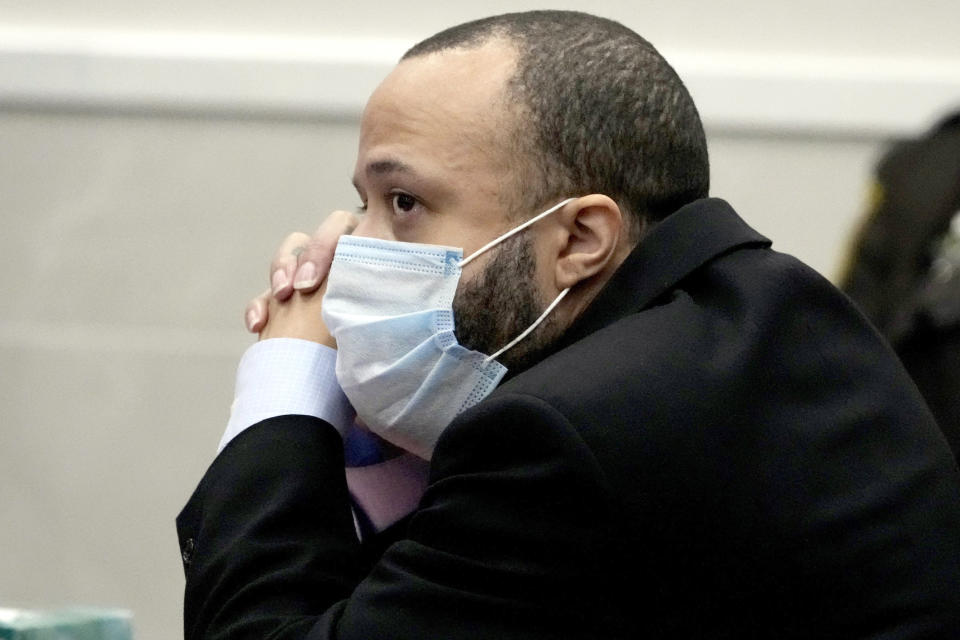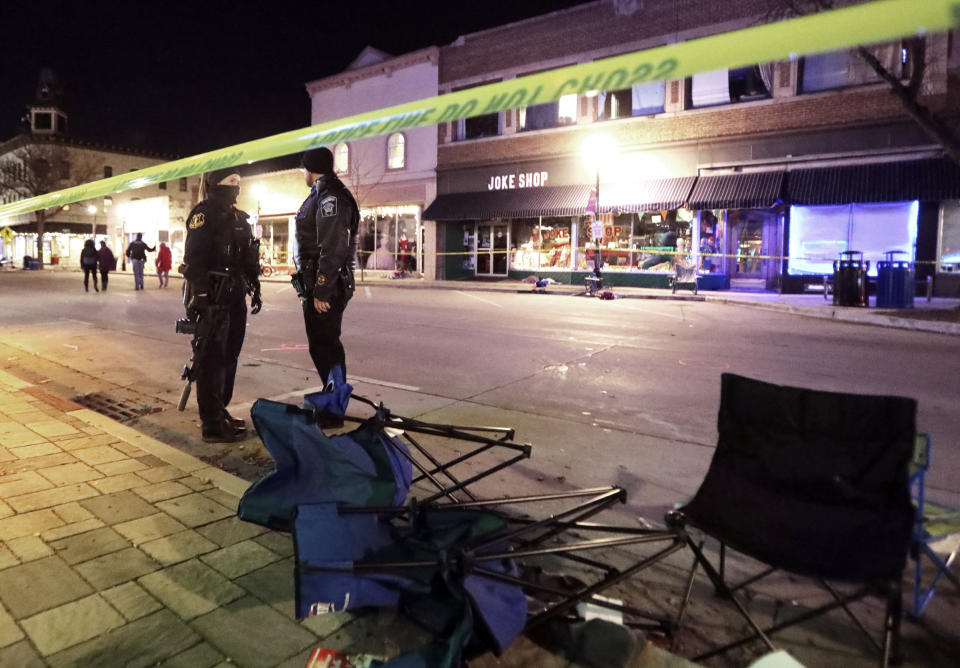Darrell Brooks, convicted of killing 6 people at Wisconsin Christmas parade, sentenced to life

Darrell Brooks, the man convicted of killing six people and injuring dozens of others when he drove into a Wisconsin Christmas parade last year, was sentenced Wednesday to six consecutive life sentences with no possibility of early release.
A jury convicted Brooks, 40, in October on all 76 counts after the deadly incident in Waukesha, west of Milwaukee, on Nov. 21, 2021. Six of the counts were first-degree intentional homicide.
The victims who were killed were 8 to 81 years old. More than 60 people were injured.
"The seriousness of the offense can be summed up frankly in one word, and that is ‘attack,'" Circuit Judge Jennifer Dorow said.
Dorow said Brooks "used that vehicle as a battering ram" and struck people over several blocks, hitting them "as if they were nothing more than speed bumps."

Dorow also said Brooks showed a "complete and utter lack of remorse," barely apologizing and at times mocking victims with hand gestures or by rolling his eyes.
People applauded as each life sentence was read.
Sentencing began Tuesday as victims and family members spoke about the trauma they experienced and how they continue to suffer.
The youngest person who died, 8-year-old Jackson Sparks, was struck with his older brother as they walked in the parade with their baseball teammates, their mother said. Both boys were hospitalized, and Jackson died two days later.
“Do you have any idea how gut-wrenching it is to have to explain to your 12-year-old son that his little brother isn’t going to make it?” Sheri Sparks told Brooks in court Tuesday. She said life will never be the same.
“I miss Jackson every second of every single day,” she said. “I feel gutted and broken. It hurts to breathe sometimes. It hurts to live without him here.”
Others said they have been left with long-lasting trauma. Jessica Gonzalez said she suffered panic attacks from any loud noise. She was able to return to the workplace only last month.
“After almost one year, some days still feel like November 21st was yesterday,” Gonzalez said.
Brooks apologized Wednesday after people spoke on his behalf.
"I want each and every victim in this incident, family members, those who lost loved ones, those who are still healing ... I want everyone to know that not only am I sorry for what happened, I’m sorry that you could not see what’s truly in my heart, that you could not see the remorse that I have," he told the court. "That you could not hear all the prayers I’ve said in my cell, that you could not see all the tears that I have dropped."
He went on to say that what happened at the Christmas parade was "not an attack."
Dorow, in sentencing Brooks, dismissed his statement as totally lacking in remorse. "He spoke here today for two hours. One sentence, that’s it: 'I'm sorry,'" she said.
Dorow said the images of the crash “kept me up at night,” and she repeatedly described the events as “horrific.” She said the only time “we heard about brake lights was when Jane Kulich was on that vehicle, and he braked so he could get her off the top and run her over.”

Brooks drove into the annual parade despite warnings from police to stop, some from an officer wearing an orange safety vest that read “police” who pounded on the hood of the SUV, according to a criminal complaint.
Police said they had been called to an earlier domestic disturbance involving Brooks and an ex-girlfriend. They said he fled that scene and drove into the parade.
Brooks represented himself at trial. The trial was marked by disruptions, including on Wednesday after Brooks began arguing with the judge and was removed from the courtroom.
A Waukesha County jury on Oct. 26 convicted Brooks of six counts of first-degree intentional homicide, 61 counts of reckless endangerment, six counts of hit-and-run causing death, two counts of bail jumping and one count of misdemeanor battery.
The charge of first-degree intentional homicide carries a mandatory life sentence. Wisconsin abolished the death penalty in 1853.
In addition to the six life sentences, one for each person killed, Brooks was also sentenced on the other counts, including a total of more than 762 years for the 61 reckless endangerment counts.
“Frankly, Mr. Brooks, no one is safe from you,” Dorow said. “This community can only be safe if you are behind bars for the rest of your life.”
Waukesha County District Attorney Susan Opper had asked for back-to-back sentences, saying that Brooks has an extensive criminal history and that “there is not one thing that mitigates this sentence.”
This article was originally published on NBCNews.com

